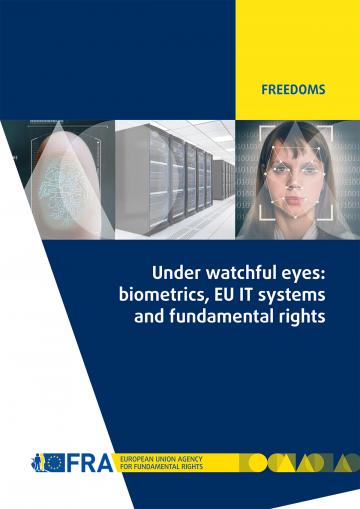
Under watchful eyes – biometrics, EU IT-systems and fundamental rights
biometric and other data in EU IT systems in the area of asylum and migration.
Europe’s migration and security challenges have prompted the European Union (EU) to develop and enhance multiple large-scale information technology systems (IT systems). Policy and legal developments in this area are evolving rapidly. The European Commission has proposed amending the legal bases for Eurodac and the Schengen Information System (SIS II), and is expected to propose amending the Visa Information System (VIS) in 2018. In addition, four new systems are planned: the Entry-Exit System (EES), the European Travel Information and Authorisation System (ETIAS), the European Criminal Records Information System for Third-Country Nationals (ECRIS-TCN), and, most crucially, an IT system that seeks to ensure interoperability across existing and planned systems.
Such systems provide invaluable support to border management efforts, but also have wide-ranging fundamental rights implications. The persons affected – including both regular travellers and persons who may be in situations of vulnerability – typically do not fully understand the implications of the use of such systems.
Contents
- Key findings and FRA opinions
- The right to information when personal data are processed
- Respect for human dignity when taking fingerprints
- Access to and use of personal data stored
- Persons in need of international protection
- How data quality affects fundamental rights
- The right of access, correction and deletion of own data stored
- Best interests of the child – risks and opportunities





